Human touch makes change happen in the legal sector

Roula Khalaf, Editor of the FT, selects her favourite stories in this weekly newsletter.
In a law firm, the role of a successful intrapreneur — a legal leader who can harness the spirit of innovation — is as much about changing the minds of people as it is about changing their computer software. And, in this category of the FT Innovative Lawyers 2023 awards, our judges clearly valued those lawyers who succeeded in combining strong technical vision with a human touch. Devising new legal services is one thing; enthusing colleagues, clients and peers about them is quite another.
But anyone who can launch one of the industry’s first legal tech incubator schemes to support start-up companies, and then attract 100 like-minded innovators to join a new network, is evidently capable of both. For this reason, Jane Stewart received several votes from our panel.
However, co-developing your very own do-it-yourself legal platform for consumer dispute resolution, and building a 4,000-strong network of women in law, arguably goes one better. Hence, the judges’ top pick was Nicky Leijtens — for a career “focusing on human aspects”.
Profiles compiled by RSGI researchers and FT editors. “Winner” indicates an Innovative Lawyers 2023 award, the rest are in alphabetical order. The judging panel is listed below.
WINNER: Nicky Leijtens, head of legal operations, NautaDutilh

Before joining NautaDutilh in 2015, Nicky Leijtens spent six years at the Dutch Legal Aid Board, where her role included working on Rechtwijzer, a service offering citizens advice on navigating problems ranging from divorce meditation to work and housing disputes. She borrowed from this approach when she moved to the law firm, concentrating on how best to guide clients.
In 2018, she introduced a “client experience” programme to train new associates on customer service, followed a year later by the rollout of a client feedback system.
As head of operations since 2021 — one of the first such appointments at a large Benelux firm — she continues to lead projects across practice groups to boost performance.
Leijtens was one of three founders of women’s legal network She Breaks the Law, launched in 2019.
John Craske, director of innovation, CMS

John Craske says his role is to allow colleagues to pursue ideas and challenge old ways of doing things.
His focus is on the intersection between the business and practice of law, leading the launch of the firm’s legal operations and project management teams, and pushing the take-up of legal tech. He has established “innovation hours”, in which fee earners’ time on new projects is treated the same as billable hours.
Having trained as a lawyer, Craske became IT director at Dundas & Wilson early in his career — before its merger with CMS in 2013 — which earned him valuable experience in procuring technology and driving its adoption.
Craske was pivotal in the launch of CMS’s managed legal services offering in 2020, which provides cost-effective legal support on high-volume, repetitive work for clients.
Rod Harrington, chief operating officer Europe, Norton Rose Fulbright
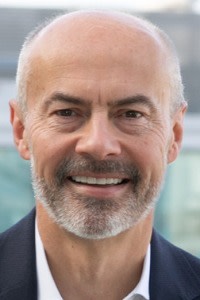
Working alongside the firm’s managing partner, Rod Harrington has modernised the partnership’s approach to staffing, process and technology. He joined the firm in 2016 after close to five years as chief administrative officer in Europe for global law firm Latham & Watkins.
During his tenure, Harrington has overseen the growth of a back office hub, now staffed by 300, in Newcastle, north-east England, which supports the firm’s lawyers with low-cost legal services and business administration. The business services teams have been provided with improved IT and project management systems and poorly-performing partners removed.
Since he took over, profit margins have increased, partner pay has improved, bonus schemes have been extended, the pension deficit has been eliminated, and hybrid working has been extended.
Matilde de Mello Cabral, chief operating officer, Abreu Advogados
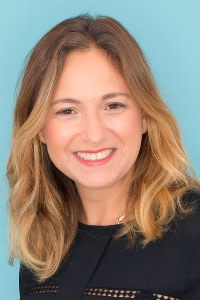
After 15 years working at PLMJ, one of Portugal’s Big Four law firms, Matilde de Mello Cabral joined rival Abreu in 2019 and has played a large role in the firm’s growth.
As chief operating officer, she has introduced the use of detailed business plans and key performance indicators, and hired tech-aware staff to run its HR, corporate social responsibility, communications and business development functions.
Colleagues credit Mello Cabral with achieving a genuine cultural shift at the firm and breaking down barriers between lawyers and its other business professionals. She has brought in a consultancy to help design a new evaluation scheme for all professionals at the firm.
She has also used monthly partner meetings to increase their engagement in management questions, and to facilitate greater collaboration between departments.
Tony Randle, partner and head of client strategy, Shoosmiths
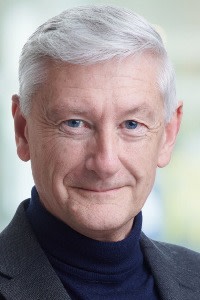
Tony Randle is a longstanding advocate for technology’s role in delivering better client service. In the past year, amid mounting interest in the impact that generative AI will have on the adoption of legal tech, that message is finding a wider audience.
After 30 years as a commercial lawyer, Randle moved into a partnership role at the firm in 2015, with a brief to improve its services. Out of that grew Shoosmiths8, which since 2021 has offered a range of complementary non-legal products to clients and now generates about £7mn in annual revenue. Randle moved last year into his current management position.
His book Legal Practice in the Digital Age, published this year and co-authored with colleagues David Jackson and Paul Caddy, provides a practical guide to adopting new technology.
Richard Singer, Europe chief managing officer, Dentons

Unusually for a law firm, the chief operating officer for Dentons Europe — which excludes the UK — is not a lawyer. Richard Singer first cut his teeth in business development for accounting firms Arthur Andersen, now defunct, and Ernst & Young, now EY. In 2009, he joined law firm White & Case, the US-headquartered global network, before joining Dentons Europe in Prague five years later.
Since 2014, Singer has overseen the hiring of 230 partners, who were attracted to the firm’s distinctive approach, and large European operations.
He is central to integrating new recruits at the firm through development programmes and mentoring. In addition, to cope with this rapid expansion, Singer continues to drive organisational change at the firm which, despite its many offices across Europe, works as one profit-and-loss centre.
Christina Spenke, global director of legal services, Freshfields Bruckhaus Deringer
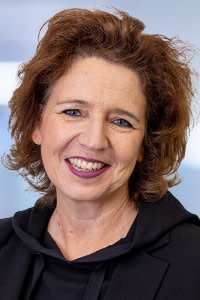
Christina Spenke set up the Freshfields Hub in continental Europe, a global team of international lawyers and legal solutions specialists, and was instrumental in creating the firm’s client delivery group in 2022, which she now leads.
This team, comprising more than 350 people in six countries, brings together lawyers, tech specialists and project managers who work on complex cases such as mass claims, cross-border transactions, and international investigations.
The structure of the client delivery group is based on specified managers leading the firm’s relationships with clients, drawing on specialists from different practices, and assigning project leaders for each client task. The aim is a more joined-up, cross-border service and delivering advice to clients in a more intelligible way.
Jane Stewart, head of knowledge and innovation, Slaughter and May

Although it is one of the UK’s best known law firms, Slaughter and May was not previously renowned for being innovative. However, over the past decade, Jane Stewart has changed the reputation of the firm by creating new roles, programmes and client services that prize innovation and use of legal technology.
In 2019, Stewart launched legal-tech incubator Collaborate, one of the first such ventures led by a law firm. As well as helping start-up tech companies to develop, it has provided new tools to improve legal work, and opportunities to work with clients on legal tech.
Stewart is part of the team that organises the firm’s legal operations graduate programme, which is open to graduates whose degree is not in law, and recently launched the firm’s 100-strong client innovation network.
Paul Worth, co-head of global litigation and dispute management, Eversheds Sutherland
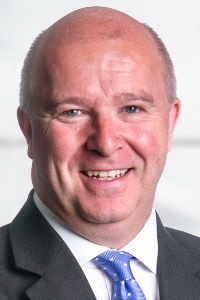
In his eight years running the firm’s litigation department outside the US, Paul Worth has helped it expand to become the largest in the UK.
To achieve this status, Worth has hired teams of project managers and technologists that have allowed the practice to take on more high-stakes cases which, in turn, has helped attract and retain specialist lawyers.
In 2015, Worth initially formed the litigation technology team and now works closely with it to ensure selected software is adopted across the department.
He has driven upgrades in project management systems, including a dashboard service to help update clients on cases. He has also instituted a “one team” approach in order to deploy staff flexibly. The department is now examining how best to deploy AI to exploit in-house litigation data.
Judging panel
For the Innovative Practitioner and Intrapreneur awards, winners were selected by judges from a shortlist compiled by RSGI.
The panel comprised:
Matthew Vincent, editor, FT Project Publishing (panel chair)
Harriet Arnold, assistant editor, FT Project Publishing
Amy Bell, commissioning editor, FT Project Publishing
Jane Croft, law courts correspondent, FT
Yasmin Lambert, managing director, RSGI
David Fisher, chief executive, Integra Ledger
Sam Grange, knowledge engineer, iManage
Nick McCarthy, account executive, Ironclad
Kirsten Maslen, director, market development, Thomson Reuters
Moray McClaren, founding partner, Lexington Consultants
More on FT.com: Best practice case studies
Read the FT Innovative Lawyers Europe ‘Best practice case studies’, which showcase the standout innovations made for and by people working in the legal sector:

Comments